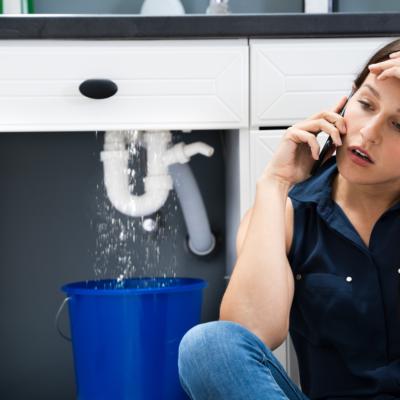Maintaining Your Kitchen’s Plumbing: What to Check and Fix

Properly maintaining your kitchen plumbing can prevent costly repairs and keep your home running smoothly. The kitchen is a high-traffic area for water usage, and its plumbing system endures significant wear and tear over time. Regular upkeep ensures that your pipes, fixtures, and appliances stay in good condition, minimizing disruptions and avoiding water damage.
Inspecting Your Sink and Faucets
Your kitchen sink is at the center of daily chores, making it prone to leaks and clogs. Start by checking the faucet for any drips or inconsistent water flow. A leaky faucet wastes water and increases your utility bills, so replace worn-out washers or cartridges as needed.
Under the sink, inspect the pipes for any signs of corrosion, moisture, or pooling water. Even a small leak can escalate into a major issue if left untreated. Tighten any loose connections, and ensure that the P-trap—the curved pipe under the sink—is secure and free from debris. If you notice slow drainage, clear out any grease or food particles using a mixture of baking soda and vinegar, followed by hot water. Avoid using harsh chemical cleaners, as these can damage your pipes over time.
Caring for the Garbage Disposal
If your kitchen is equipped with a garbage disposal, it requires special attention to keep it functioning efficiently. Regularly clean the unit by grinding ice cubes and citrus peels to remove buildup and eliminate odors. Be cautious about what you dispose of—items like bones, fibrous vegetables, and grease can clog or damage the blades.
If you hear unusual noises or experience jams, turn off the unit before attempting to clear it. Use a hex wrench to manually rotate the blades and dislodge stuck debris. Regularly flushing the disposal with hot water can also help maintain smooth operation. Proper care extends the life of your garbage disposal and prevents costly repairs.
Monitoring Appliances and Connections
Kitchen appliances such as dishwashers and refrigerators with water dispensers are linked to the plumbing system and should be checked periodically. Inspect the hoses and connections for cracks or wear, as a damaged hose can lead to leaks and flooding.
Dishwashers often accumulate debris in their filters, reducing efficiency and potentially causing drainage problems. Clean the filter regularly and check the drain line for any blockages. For refrigerators with water lines, ensure that the connections are tight and the water filter is replaced according to the manufacturer’s recommendations. This not only maintains water quality but also prevents sediment buildup in the plumbing system.
Preventing and Addressing Clogs
Clogs are one of the most common kitchen plumbing problems, but they’re also preventable with proper habits. Use drain strainers to catch food scraps and debris before they enter the pipes. Avoid pouring grease, oil, or coffee grounds down the drain, as these can solidify and cause blockages over time.
If a clog does occur, try using a plunger or a plumber’s snake to remove it. Persistent clogs may indicate a deeper issue in the plumbing system, such as a buildup in the main line, which may require professional assistance. Taking preventive measures and addressing minor issues promptly can save you from the inconvenience of a full-blown blockage.
Regular maintenance of your kitchen plumbing is a smart investment in your home’s functionality and value. By inspecting fixtures, caring for appliances, and adopting good practices, you can prevent most common issues and ensure that your plumbing system works efficiently for years to come. Simple, proactive steps not only save money but also reduce the stress of unexpected repairs.


